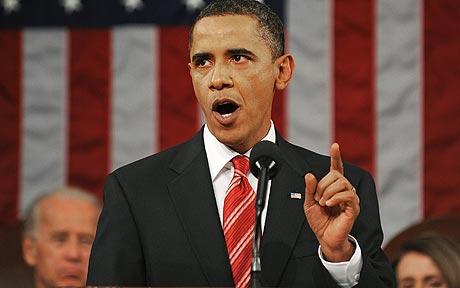… and is our current Storyteller-in-Chief even telling stories?
Political and communications analysts have written recently about President Obama’s storytelling — or lack thereof — both in his State of the Union speech and in the first year of his presidency.
Some, like Jason Snyder, said that the State of the Union address was a case study in the art of communication for three reasons, one of which was that it included authentic stories (the others: consistency of message and proper positioning). Others, like Emily Bobrow, said of the speech, “We didn’t get a story …”
I don’t agree completely that we didn’t get a story. We may not have heard an overarching narrative, but we certainly heard a patchwork of small stories.
But the lack of that overarching narrative is what New Yorker writer Junot Diaz (whom Bobrow also cites) laments. Diaz wrote his piece not about the State of the Union but about the anniversary of Obama’s inauguration. Some excerpts:
All year I’ve been waiting for Obama to flex his narrative muscles, to tell the story of his presidency, of his Administration, to tell the story of where our country is going and why we should help deliver it there. … a story that no matter what our personal politics are will excite us enough to go out and reëlect the teller just so we can be there for the story’s end. But from where I sit our President has not even told a bad story; he, in my opinion, has told no story at all. … The President gave us a raft of information about why healthcare would be a swell idea; the Republicans gave us death panels. … I’ve yet to hear anything that excites that part of my brain which loves, which craves the symmetries the pleasures of well-told tale.
Diaz contrasts Obama’s unstoried first year, not only with tea-party and death-panel stories, but with newly elected Massachusetts Senator Scott Brown’s “story of an upstart outsider with energy and ideas, who was going to shake things up” and the story of himself and his background that Obama wove on the campaign trail.
So what would a presidential story that “excites that part of [our] brain[s] which love, which crave the symmetries the pleasures of well-told tale” look like? Diaz doesn’t give an example, but the one that springs immediately to mind for me is the future story JFK told that began “We will go to the moon before the decade is out.” I’m not sure that the State of the Union is the best platform for an inspiring story like that one, but I still would have liked a more cohesive narrative to tie together the policy points in the speech.
I also believe Obama did deliver an overarching narrative of a president who has made mistakes in his first year in office and learned a great deal. In that sense, he told a highly authentic personal story in the State of the Union.
I’ve read repeatedly that authenticity is key to effective storytelling, most recently in a blog post by Jo Golden: “No matter how you decide to tell your story, the most important quality will be authenticity. Authenticity, honesty, and straightforward ways of being promote trust.”
I know we want honesty and straightforward ways of being from our Storyteller-in-Chief. But I wonder about authenticity. Presidents rarely admit to mistakes; certainly Obama’s predecessor didn’t. My husband worried that the FOX News-type pundits would rip into Obama for telling his authentic story of imperfection. (I don’t know if that happened because I cannot bear to watch FOX News, but they pretty much rip into the president for everything.)
I’d love to get Paul Costello’s take on how the president is doing with his storytelling.
And what do you think?
How much authenticity do we want from our president? Are se so accustomed to spin that authenticity from our president makes us nervous?
